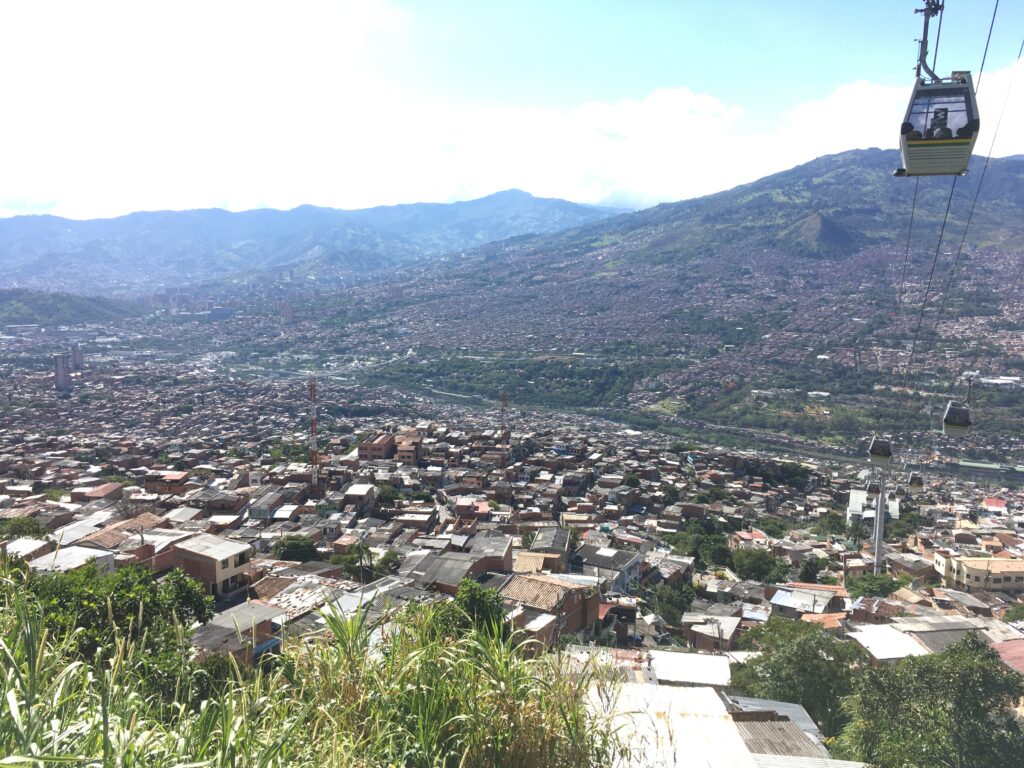Guest post by Jeff Mosenkis of Innovations for Poverty Action Medellin, Colombia New results from my colleagues in Colombia with Chris Blattman, David Cerero, Gustavo Duncan, Sebastian Hernandez, Benjamin Lessing, Juan F. Martínez, Juan Pablo Mesa-Mejía, Helena Montoya, and Santiago Tobón find the sensationalized headlines from early in the COVID days about gangs enforcing quarantine don’t hold up, at least in Medellin, where gangs do provide a lot neighborhood municipal services. Using existing research on gang governance, a survey of all low- and middle-income neighborhoods showed government was providing most public health and social services, except for in a few neighborhoods. (I summarize in a thread here). Chris just gave a talk on the ongoing project on how and why gangs function
Topics:
Jeff Mosenkis (IPA) considers the following as important: blattman, Colombia, Crime, gangs, GiveDirectly, jobs, miscellany, Sudan, Uganda
This could be interesting, too:
NewDealdemocrat writes The (totally contradictory) Big Picture
Bill Haskell writes Reasons for Taking a New Job
NewDealdemocrat writes Monthly Rebound Masks Deeper Declining Trends
Joel Eissenberg writes The economics of mental illness
Guest post by Jeff Mosenkis of Innovations for Poverty Action

Medellin, Colombia
- New results from my colleagues in Colombia with Chris Blattman, David Cerero, Gustavo Duncan, Sebastian Hernandez, Benjamin Lessing, Juan F. Martínez, Juan Pablo Mesa-Mejía, Helena Montoya, and Santiago Tobón find the sensationalized headlines from early in the COVID days about gangs enforcing quarantine don’t hold up, at least in Medellin, where gangs do provide a lot neighborhood municipal services. Using existing research on gang governance, a survey of all low- and middle-income neighborhoods showed government was providing most public health and social services, except for in a few neighborhoods. (I summarize in a thread here).
- Chris just gave a talk on the ongoing project on how and why gangs function like governments, it’s online here (if position isn’t preserved in this link it starts at the 2 hour mark:
- The Ugandan government has suspended GiveDirectly’s operation (which I believe was in conjunction with USAID), with a really weird-seeming accusation against an org with a lot of research and transparency:
[interim executive director of the National Bureau for NGOs, Stephen] Okello claimed that an investigation had found that GiveDirectly’s cash handouts were likely to make Ugandans lazy, promote idleness, domestic violence, dependency syndrome and tension within neighbouring villages. Okello also cast doubt on the source of GiveDirectly’s cash.
-
- GiveDirectly response/update here
- Jobs:
- Michael Kremer’s looking for a deputy director for his new Development Innovation Lab at UChicago
- IRC: a very cool initiative studying promotion of play-based education in several East African countries (with IPA and several other orgs) is looking for a senior education researcher (based in Kampala). And (separately) for a researcher in Nairobi or Kampala on a livelihoods project.
- IPA has a new program on how COVID has affected women’s work and entrepreneurship, and is looking for a senior policy associate and policy manager in Dhaka and in Nairobi, respectively. Also in Dhaka, we’re looking for a consultant to work on consumer financial protection around digital financial services (And more IPA listings on our jobs page here)
- RAships in micro (not dev I think), at UChicago Booth
- Going back to the job on digital financial protection, the reason for that larger research agenda is things like cheap Chinese smartphones coming preinstalled with malware to steal money from users, and another story from Pakistan I can’t get to now about a mobile interface essentially designed to trick users into taking out loans against their salary.
- Smithsonian recently had a cover story on the kingdom of Kush, 5,000 years ago in what’s now Sudan.
